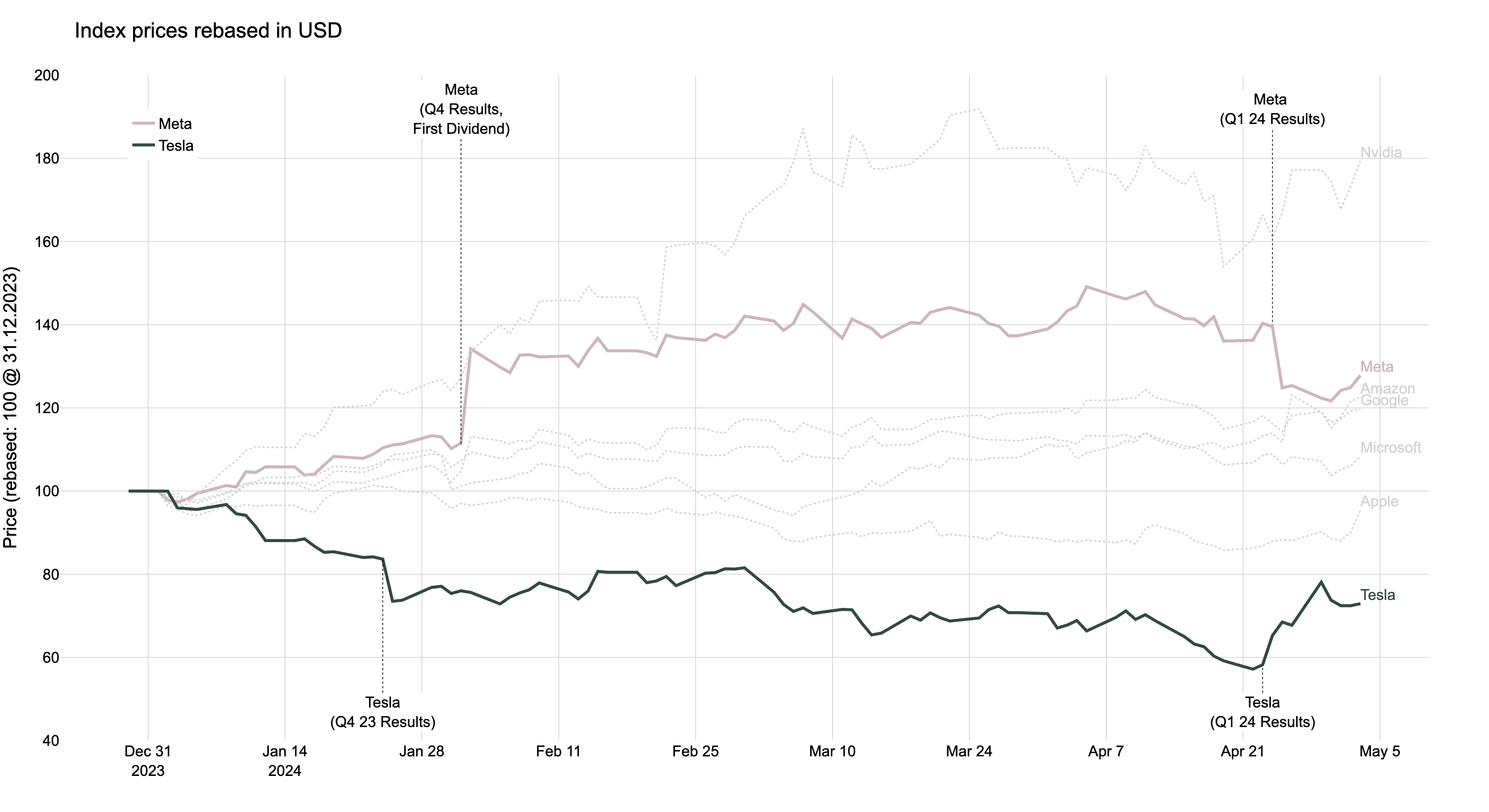AI Changes the World. Interest Rates Say How.
05.05.2024
In the dynamic realm of finance, the influence of seven major tech titans, dubbed the Magnificent 7, looms large, dictating the fortunes of the stock market. From April 24th to May 3rd, the NASDAQ 100 has experienced fluctuations of approximately 2.2%, with the MAG 7 accounting for more than 70 percent of this movement, underscoring their pivotal role in shaping current market dynamics.
Meta and Microsoft, heralds of the digital age, unveiled their earnings on April 24th, laying the groundwork for volatile days ahead, punctuated by Google's groundbreaking announcement of dividends. As subsequent companies disclosed their earnings over the following days, investor attention remained rapt. While most entities surpassed expectations, Tesla emerged as an outlier with a less-than-stellar business performance.
However, remarkably, Tesla's stock price remained unscathed, with investors reacting positively to the news. Of particular interest was Tesla's strategic shift towards prioritizing the development of a more affordable vehicle, the Model 2, over advancing its ambitious AI-powered self-driving robo-taxi initiatives. Despite falling short on revenue targets, Tesla witnessed a staggering 15% surge in its share price following this revelation.
Conversely, Meta, though meeting analysts' estimates, experienced a sharp decline of over 10% in a single day. The market's unfavorable response stemmed from Meta's decision to allocate resources towards its ambitious metaverse concept, rather than doubling down on its proven and, arguably, superior AI ventures (see chart below). These contrasting narratives underscore a compelling reality: the MAG 7, like any other corporate entity, are subject to the ebb and flow of economic forces.

In an era characterized by prolonged periods of elevated interest rates, investors display a preference for ventures capable of yielding returns within a reasonably short timeframe. The principle at play here is straightforward: when interest rates are high, the value of future cash flows diminishes, whereas in a low-interest rate environment, investors exhibit greater patience for delayed profitability.
Recent months have witnessed a notable shift in investor sentiment, with initial expectations of seven FED interest rate cuts in January dwindling to just one or two. Consequently, the onus is on ventures to demonstrate a clear path to monetization within a compressed timeframe to secure investor backing.
While substantial investments in AI have shown promising returns, the focus appears to be shifting away from lofty, aspirational projects towards endeavors with more immediate revenue-generating potential. Microsoft, Amazon, and Google already generate substantial revenue growth from the AI-linked services.
As the financial landscape continues to evolve, the ability to align investment strategies with prevailing economic conditions will be paramount for navigating the intricacies of the modern market.
